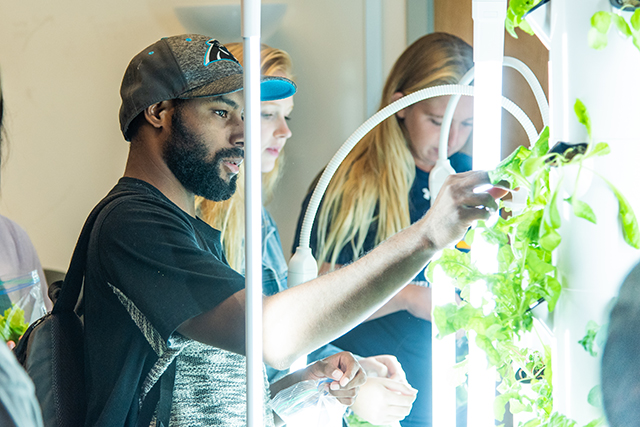
The College of New Jersey’s minor in Environmental Sustainability Education recently received accreditation by the North American Association for Environmental Education.
TCNJ’s is the only program in the state to earn this recognition, and is one of few environmental education programs specific to pre-service PreK–12 teachers at the undergraduate level in all of North America.
NAAEE accreditation formally recognizes high quality college and university programs that consistently prepare well-qualified environmental educators who possess the understanding, skills, and attitudes associated with environmental literacy, as well as the ability to apply them in their educational practices. The accreditation process involves a rigorous review of program design and implementation, including the assessment data.
TCNJ began offering the minor in spring 2015 and has so far graduated 20 students.
“Many of these graduates have gone on to lead school-based green teams, secure external grant funding for their schools, and develop innovative curriculum often times including school gardens or STEM labs,” says Lauren Madden, associate professor of elementary science education and coordinator of the minor.
For example, Morgan Pestorius, who completed the minor in 2017, currently serves as a gifted and talented teacher in Watchung Borough School District where she coordinates a school “trashion” show where students create clothing from upcycled materials.
“The graduates enter their classrooms with a keen understanding of the intersection between environment, sustainability, ecojustice, and education,” says Madden. “They approach teaching and learning as change-agents and employ multi-disciplinary perspectives to their work.”
— Emily W. Dodd ’03
